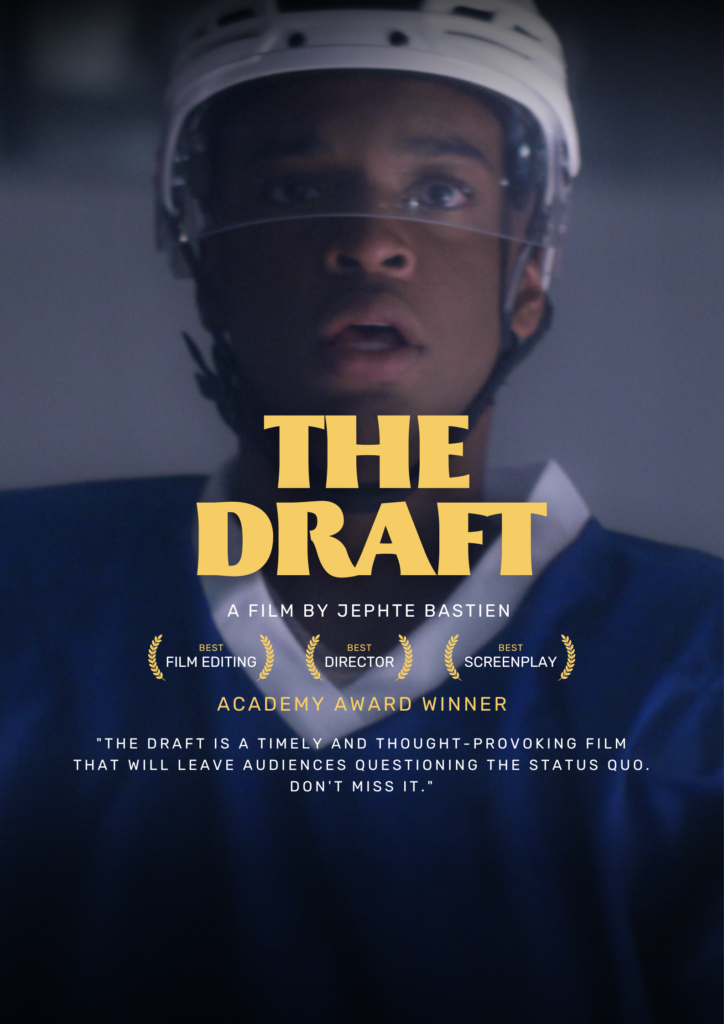Former agent and manager turned author, music business and performing arts consultant Jeri Goldstein acts as a guru to individuals guiding their own music careers. For 20 years, she has worked with some of the top acoustic artists; booking national and international tours for artists in music, theatre, and dance. Goldstein’s award winning book, How To Be Your Own Booking Agent: The Musician’s & Performing Artist’s Guide To Successful Touring, self-published in 1998, is used in music business courses across Canada and the United States. Jeri shared with The Vocalist, some of the wisdom she has acquired that will help aspiring artists gain control of their own careers.
TVM: I have the pleasure today to speak with Jeri Goldstein author and owner of performingbiz.com an entire website devoted to successful booking and touring strategies for musicians and performing artists. How are you today Jeri?
Jeri: Great. Thanks Nana, for speaking with me.
TVM: No problem. It’s wonderful to speak with you considering your extensive experience in the music industry. You specialize in managing vocalists and booking them performances, so could you please tell the audience a little bit about your career and explain what exactly a booking agent is?
Jeri: Well when I first started, even back in college I had been booking acts into my local coffeehouse at the university and became involved with a number of those acts by starting to book them professionally by
just simply getting them gigs at other venues, colleges and universities. So essentially a booking agent is somebody that works with an artist, they could be a performing artist, singers, sports figures, but a booking agent is the one who makes the artist available for gigs and for performance. In relation to most musical performances, that basically means they get them concerts, performances and venues appropriate for that artist’s talent.
TVM: Who was your first artist in college and actually which college did you attend?
Jeri: I went to a state university in upstate New York. I worked at the university running the college coffeehouse and from that I booked a lot of singer-songwriter type artists from New York City and around the
north eastern region. From that experience I ended up working with a number of artists for about 20 years after I graduated. I worked with country, bluegrass, and folk artists, vocalists, children’s artists, theatre folks as well as a dance troupe.
TVM: That sounds amazing. What exactly, would you say, you look for in an artist as a deciding factor as to whether or not to represent them?
Jeri: Generally, when I was working as an agent, now I consult with musicians around the world and help them navigate their careers to help them be better bookers for themselves and for their own career development. When I was booking artists, I looked for the artist to be fairly self- sufficient so that they were very knowledgeable about their own talent as well as somewhat knowledgeable about the business end of things so that they could be a partner with me in their career development. I was not necessarily interested in working with artists that just wanted to hand over all the responsibility to me and I think that’s one of the key factors that many artists who have a problem maintaining a relationship with an agent or a manager is that they dump their career and development on to someone else and don’t take the responsibility of becoming a fully integrated partner in their career development.
TVM: Interesting, that totally makes sense. Would you say that there are any other mistakes many artists make?
Jeri: I think that it’s really important, especially in this time frame, this technological time frame when having control over your recording career, having control over your touring and booking is essential in having a successful career when you know what goes into it. I think understanding the variety of aspects that go into helping to market yourself are also extremely important as well as having that sense of drive to reach what your goals are and making ongoing goals that you can talk with other team members about who are also working with you on your career. The idea is that you as an artist are like, ‘here’s what I see for my career, how can you help me make that happen?’
TVM: Do you also find that some artists up and coming and established, tend to forget about these various aspects? What do you advise is the first thing they should do as a fresh new artist?
Jeri: I think that artists that are just beginning are mostly thinking about their art and honing their skills to become better at what they do and that is the first thing that they need to be doing because many artists jump into the fray far too early. They start looking for gigs or they start becoming interested in, ‘oh, I need to find an agent’ and it’s far too early in their career development. So honing your skills to be exceptional is one thing but the other thing is to develop an audience. As you work on your skills, it is important to develop an audience and know who that audience is and how they are appropriate to you is going to be
imperative in how you then find the right venues to play in, how you get the appropriate media outlets to cover your development, and how begin to market yourself to potential team members, such as agents, managers, and record labels if you choose to go in that direction.
TVM: So artists would have to market themselves to a booking agent as well?
Jeri: Absolutely. I get so many letters that would say, ‘hey, you wanna book me?’ without really discussing anything about them, what their looking for or where they are at the present moment. So having a full understanding of what you have to offer as an artist, what kind of programs do you offer, how have you taken whatever skills you have developed up until this point and framed them into something that is actually marketable? Just to be a singer-songwriter and have 100 songs in your repertoire is not necessarily saying that you’re marketable. How you market yourself helps team members know how best to serve you but you already have to point yourself in the right direction. I think this is one of the biggest areas artists fail to focus some attention on. Ok, I’ve written all these songs, let’s get them together in a theme, can I create
a show? For example, the best love songs from 1950. What can I do with this material? I’ve got a number of artists, vocalists and vocal coaches that I work with and they have shows that they’ve put cleaver title. And that makes a huge difference in how well they can sell themselves.
TVM: So pretty much as an artist, you have to do all of the background work first before you approach anyone, such as yourself.
Jeri: Oh yes. What I do with artists now as a consultant and career development expert is that I help them formulate these aspects of their career and help them to recognize what they have to offer. I can look at an artist’s website and tell them, ‘you have this and this going on, why not put them together and create these various programs?’ I help artists develop that kind of marketing savvy and help to educate them as to what’s going on in their own career and who may be the best audience for them to reach out to.
TVM: That makes total sense. Could you name a few artists that you have worked with past or present?
Jeri: Um, well I’ve worked with people you’re probably not going to know.
TVM: That’s okay! Names are always great.
Jeri: I know, but to me, what’s more important, is not that you work with a particular artist, what’s more important to me is that any artist no matter where you are in your career development, has the potential to find the appropriate audience and have success at the level that you determine. When you namedrop it seems to make the artist either untouchable, or it renders the advice given unimportant because it’s like, you’ve only worked with that person so it doesn’t matter. Much more important is that any artist finds their audience and the success level that is right for them. When you look at the names that are familiar to people because they’ve so called, in quotes and italics, have ‘made it’ that sometimes can be off-putting to an artist who is just beginning who goes, ‘I’ll never be where they are.” And that’s not the point, the point is the artist determines their own level of success. Some artists wanna tour the world, other artists want to just sleep in their own beds at night and stay in their own town but play gigs locally. Each one is absolutely a perfect level of success. So it’s just how they make what they want in their lives happen for themselves given their talent, who their audience is, and where they want to go in their careers and their goals. So I don’t necessarily aspire to work with the most famous people, I aspire to work with artists to make them successful depending on what they consider their level of success, how far they want to go, and to help them understand that they have things to offer that they are probably not even considering. I help artists maximize their potential.
“The idea is that you as an artist are like, ‘here’s what I see for my career, how can you help me make that happen?’”
TVM: Okay, that sounds great. Do you have any other plans on the horizon?
Jeri: Right now I’m focusing on creating 4 modules for my next online course and I’m putting together some more cause I have an online course, Booking and Touring Success Strategies, and that course is a 5 module audio course that gives artists this kind of background information. How to think about touring, how to think about their pitch markets or their potential mechanisms and strategies for touring and how to understand better how to get themselves out there to make money instead of losing it (laughs).
TVM: (laughs) Yeah, very important! I think the work you’re doing is amazing because you give artists a starting point towards reaching their goals. Your website performingbiz.com is very helpful.
Jeri: Yeah there’s lots of articles, my Monday morning biz booster hot tips gives people a lot of specific to do’s on how you can build your career. The book How To Be Your Own Booking Agent is used at many colleges and universities and music business courses at Berkley College of Music, even The Harris Institute up in Canada. I made sure to look at Canada, the US and international touring to answer a lot of questions that artists kept asking me, the website moves from I think I’d like to have a performing career to how to get out there, negotiate gigs, deal with contracts, deal with marketing, all the way up to when to quit your day job (laughs).
TVM: (laughs) You seem to be all about self-sufficiency and you empower people with the tools necessary to do it themselves.
Jeri: I think that it’s important that artists recognize that they have to do it themselves to a certain degree to get going before you can attract the high-powered or even the local agents or managers. It’s your career. If you are not in charge of your career, there is more of the likelihood that you could be mislead, or ripped off, and not fulfill the goals that you want to achieve and that piece of the puzzle is all in your hands. That’s why I felt that it was so important for artists to have the tools and the resources at their fingertips to be able to take it on themselves. Technology has also helped a great deal with that theory because it allows the artist the opportunity to maintain, develop, and excel at taking care of themselves.
TVM: Very well said. Thank you so much Jeri, for squeezing us into your busy schedule, it’s much appreciated.
Jeri: You’re welcome.


 Business3 years ago
Business3 years ago
 Business2 years ago
Business2 years ago
 Business2 years ago
Business2 years ago
 Business3 years ago
Business3 years ago
 Business3 years ago
Business3 years ago
 Business3 years ago
Business3 years ago
 Business3 years ago
Business3 years ago
 Business3 years ago
Business3 years ago






































